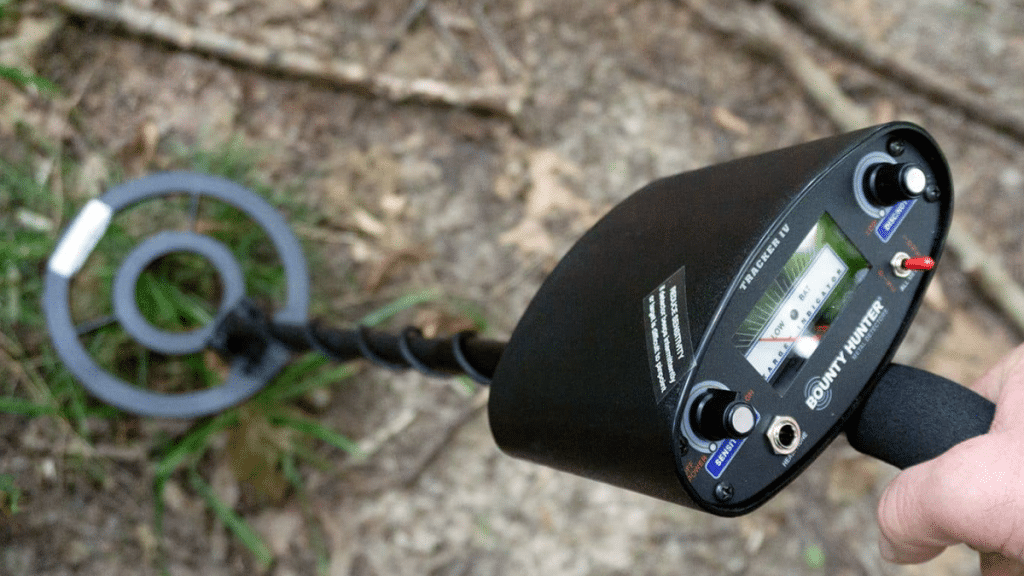Metal and gold detecting can be an exhilarating hobby, filled with the promise of uncovering hidden treasures beneath the earth’s surface. However, as with any pursuit, there are certain pitfalls that can trip up even the most experienced detectorists. Let’s explore five common mistakes to avoid when using a metal and gold detector, helping you maximize your chances of success and minimize frustration along the way.
Lack of Research
One of the biggest mistakes rookie detectorists make is diving into the hobby without doing their homework first. With a wide array of detector models and settings available, it’s essential to research which ones are best suited to your needs and preferences. Check out this site to get started. Take the time to read reviews, watch tutorial videos, and talk to experienced detectorists to gather insights before making a purchase. Doing so will ensure that you invest in a detector that meets your expectations and maximizes your detecting capabilities from the get-go.
Improper Ground Balancing
Another common mistake detectorists make is neglecting to properly ground balance their detectors. Ground balancing is crucial for achieving accurate detection results, as it compensates for mineralization and other environmental factors that can interfere with signal detection. Failing to ground balance your detector can result in false signals and missed targets, undermining the effectiveness of your detecting efforts. Be sure to consult your detector’s manual and follow proper ground balancing procedures to ensure optimal performance in varying soil conditions.
Overlooking Environmental Factors
Environmental factors play a significant role in the success of your detecting endeavors, yet many detectorists overlook their impact. Factors such as soil mineralization, electromagnetic interference, and weather conditions can all influence detection accuracy. To mitigate these challenges, pay close attention to your surroundings and adjust your detecting techniques accordingly. For example, consider using discrimination settings to filter out unwanted signals or investing in a detector with advanced ground tracking capabilities to adapt to changing soil conditions on the fly.
Ignoring Target Identification
Target identification is a valuable feature found in many metal and gold detectors, yet it’s often overlooked or misunderstood by novice detectorists. Ignoring target identification can lead to wasted time and effort digging up trash or irrelevant items, detracting from the overall enjoyment of the hobby. Take the time to familiarize yourself with your detector’s target identification capabilities and learn to interpret the signals it provides. By doing so, you’ll be better equipped to distinguish between valuable targets and false alarms, maximizing your efficiency and minimizing frustration in the field.
Inadequate Maintenance and Care
Last but certainly not least, inadequate maintenance and care can significantly impact the performance and longevity of your metal and gold detector. Unfortunately, many detectorists overlook this aspect of the hobby, leading to unnecessary wear and tear on their equipment. To ensure your detector remains in top condition, develop a regular maintenance routine that includes tasks such as cleaning, calibrating, and storing your detector properly when not in use. By taking care of your equipment, you’ll prolong its lifespan and enjoy more successful detecting outings in the long run.
Tips for Buying a Metal and Gold Detector
Is it finally time to invest in your own metal and gold detector? This can be an exciting purchase, but it’s not one you want to rush into. When you buy this type of equipment on a whim, you might find out it’s not going to suit your needs. It might not have features you want or it simply can’t work well enough for the adventures you’re going on. The key is to carefully research metal and gold detectors, as well as their companies, before buying. Here are some tips that can help you get started.
Have a Budget
The truth is that metal and gold detectors can get expensive. There’s a huge range of prices you can expect, which means that you need to have a budget to begin with. Perhaps you’re looking for an affordable model and one you can use as a hobby. Maybe you plan on taking your adventures seriously and are willing to invest a lot in your equipment. Either way, you need to have a figure in your mind to begin with. This will help you narrow down your options and ensure you don’t go over your budget.
Analyze the Features
Every meta and gold detector is different. What you don’t want to do is make a decision solely on the price. Yes, you work within your budget. But you have to analyze the features and ensure you’re choosing a detector that’s suitable for your needs. Look at elements like the charging time and range in order to make your decision.
Always Read the Reviews
While you can be excited to buy a metal and gold detector and are impressed with all its features, you need to ensure it’s not too good to be true. It’s a good idea to read what other customers have to say about the equipment. Therefore, always ensure you read the reviews on metal and gold detectors. Ensure there’s positive feedback. In addition, it’s a good idea to see what the reviews on the company are too. This can ensure you’re buying from a reliable source and one that’s going to give you good value.
Conclusion
And there you have it— common mistakes to avoid when using a metal and gold detector. By arming yourself with knowledge and taking proactive steps to address these pitfalls, you’ll set yourself up for success in your detecting endeavors. Remember, detecting is as much about the journey as it is about the treasures you uncover along the way.
